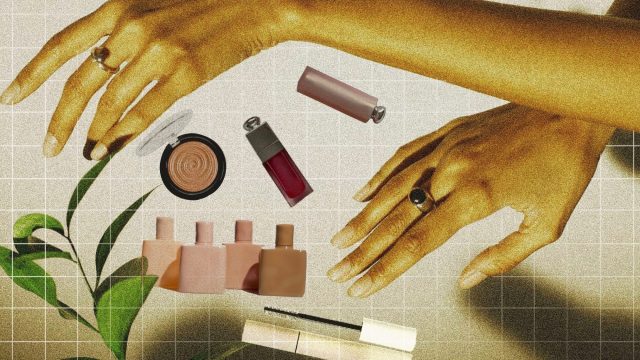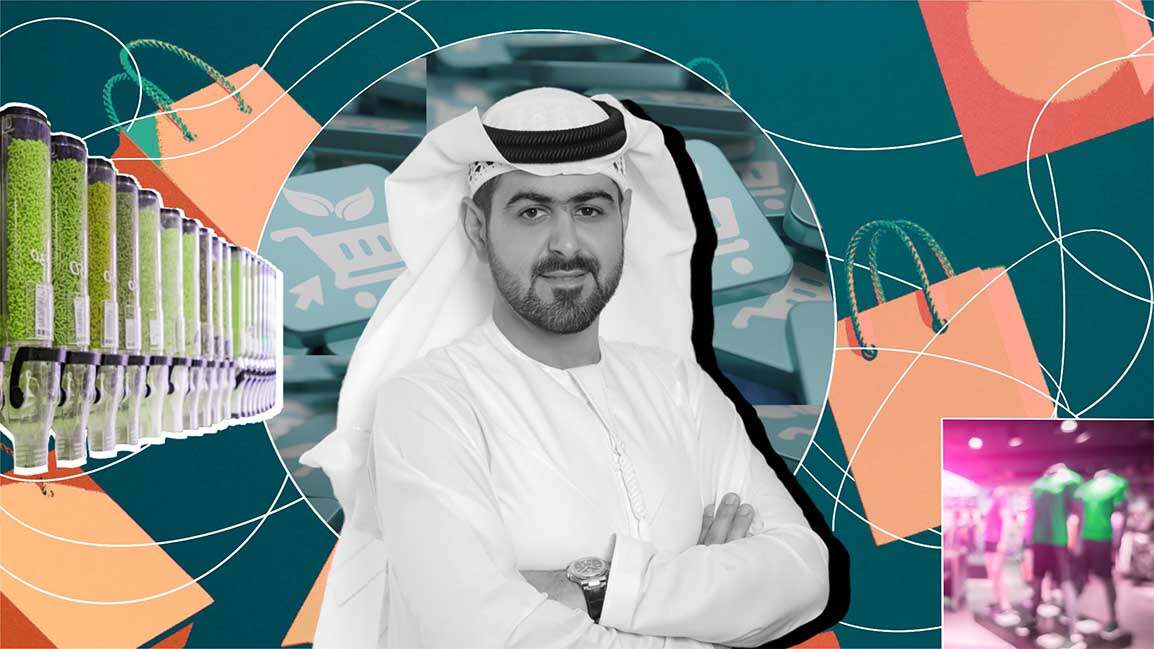- | 9:00 am
The Arab consumer is getting serious about conscious beauty. But are the brands listening?

The Middle East is known to spend quite a bit of money on cosmetics. Grooming and pampering are part of the culture. With one of the highest spending on beauty globally, the region is playing catch up on conscious beauty, and it’s changing the way Arab women look at their beauty rituals.
“The beauty and personal care market in the Middle East and Africa region is worth $ 33 billion as of 2021 and is expected to reach $39 billion by 2025,” says Amna Abbas, consultant in beauty and fashion with Euromonitor.
According to her research, it is believed that one of the key areas of growth in the Middle East will be clean or green beauty. While there is no regulated definition, industry insiders use the term for products made with natural ingredients, chemical-free and nontoxic.
One of the largest luxury brands in the Middle East, the Chalhoub Group, is known for successfully launching its concepts in beauty (such as beauty chain Faces) and fashion (Level Shoes).
They are also the local partner for Sephora and many other leading international brands. “Clean beauty will rise in the region over time. It is known that global trends always trickle into the Middle Eastern market with time. There is an interest, of course, as natural ingredients have long been part of beauty rituals in the region (e.g., rosewater, castor oil),” says Nabil Chalhoub, Vice President – Beauty Franchise & Distribution.
An Emirati, Dr. Lamees Hamdan, launched Shiffa Beauty in 2004, whose brand “Shiffa” means “healing” in Arabic. She found her inspiration in Middle Eastern traditions. It is one of Sephora store’s best-selling brands across the Gulf region and retails in Nordstrom in the US. She says, “I believe that within the next decade, all doctors will be schooled in herbs as a first-line treatment for disorders.”
Hamdan started the brand when she was pregnant with her first child, and her first product was a healing balm designed to help pregnant women with stretch marks. She even received a shout-out from Kim Kardashian.
When Shiffa launched, the term “clean beauty” wasn’t widely popular. Shiffa now has a cult status in the region and sells in key retail points in the US. Its success prompted Hamdan to launch her second brand, DL.MD, which focused on clean supplements. She saw that many women were confused about which supplements they needed and believed that alternative holistic approaches to medicine would soon live side by side with conventional methods.
It was only available in the US during the launch phases but is now about to retail in the UAE at Carrefour supermarkets.
“We launched in the US first because there is a huge market in clean supplements there. It took longer for us to find a partner here in the GCC, and we are excited to launch with Carrefour,” she added.
To her, the fact that one of the region’s largest supermarket chains is stocking DL.MD is proof that this region is now making conscious efforts to wellness and beauty.
There are now a handful of homegrown clean beauty brands, including Kuwaiti beauty brand Prismologie, launched in 2015 by Sheikha Intisar Al-Sabah and Sheikha Fatima Al-Sabah.
Huda Kattan, the beauty mogul who started her billion-dollar empire with a range of fake eyelashes, entered the clean beauty game with her Wishful skincare range at the start of last year.
Clean beauty advocate Lynn Khoury Soubra opened Lynn’s Apothecary in 2016, one of the first stores in the Middle East that was dedicated to clean beauty. The Beirut-based store carries over 30 brands. “There is a greater level of awareness in the Arab region about clean beauty than 3-4 years ago. I see clean beauty currently taking off in the region as a trend,” she says,
This region’s young population is more aware of the need to be more conscious about their consumerism which is why the global skincare industry is looking to fill this gap.
“Generation Z and millennials are demanding greater transparency as they move towards clean beauty products,” Chalhoub says.
In the last two years, brands such as Sunday Riley and Tata Harper have launched in the region. Khoury Soubra says that these independent brands have spurred homegrown players to launch their products and become a part of the clean beauty movement. “Authentic and independent clean beauty companies are increasingly able to gain interest and funding which is allowing them to: spread their message digitally much more effectively and widely; partner with influential figures from the region that have a large outreach; expand globally, and create increasingly high performing products.”
Amina Grimes and Ayat Toufeeq started Powder Beauty, a conscious beauty e-tailer with a curated selection of niche and cult global brand brands, in early 2018. “We take a content-led approach on Powder, and we make sure information is readily available in Arabic. Homegrown brands will soon be coming to Powder,” they say.
A few more websites were launched during the pandemic, such as The Secret Skin, Project and Project BYouty.
An example of a disruptor in the clean beauty industry that also launched amidst the pandemic is the Founder and Creative Director of Peacefull, Salama Mohamed.
With over one million followers, Mohamed launched an all-natural beauty brand based on the principles of Korean skincare. She adjusted to work in this region with a tropical climate for which skincare needs to be tweaked. Very much made for all ages, it is suitable for all skin types and both men and women.
Blessed with vitiligo, she used her platform to talk about the unrealistic standards of beauty in the region. The multi-brand has a dedicated section for clean beauty in their stores and website.
“I would say the journey to launching Peacefull started out of necessity. I needed products that would help my sensitive skin. After finding Korean skincare and active ingredients, I wanted to share formulas that work with my community because I truly believe we all deserve good skincare,” she says.
She points to the fact that it had sold out on Peacefull.com in just three weeks, with limited stock availability at its partner Sephora outlets, as evidence that there is an appetite for conscious beauty products in the region.
She adds, “There’s been a shift in recent years with the beauty and skincare industry, and I foresee that to continue in 2022. Customers are no longer seeking out ‘branded’ products for the sake of it, but educating themselves on ingredients and what should and shouldn’t be used for the skin or appear in skincare products.”
There is a definite gap in the market for more homegrown beauty brands. As Chalhoub says, “Clean beauty will rise in the region over time. It is known that global trends continuously trickle into the Middle Eastern market with time. There is an interest, of course, as natural ingredients have long been part of beauty rituals in the Gulf.
Also,Read the 7 best anti-aging skin care products you must try out here.
However, do not expect to see conventional beauty products lose their hold on their market. Arab women having such a love for beauty will add conscious or green products to their beauty regimes but may not let go of the products they already buy. As Khoury Soubry says, “will this region, who loves its aesthetic procedures, adopt a 100% clean beauty routine? I am not sure.”
Read more related impact articles in our impact section here.


































